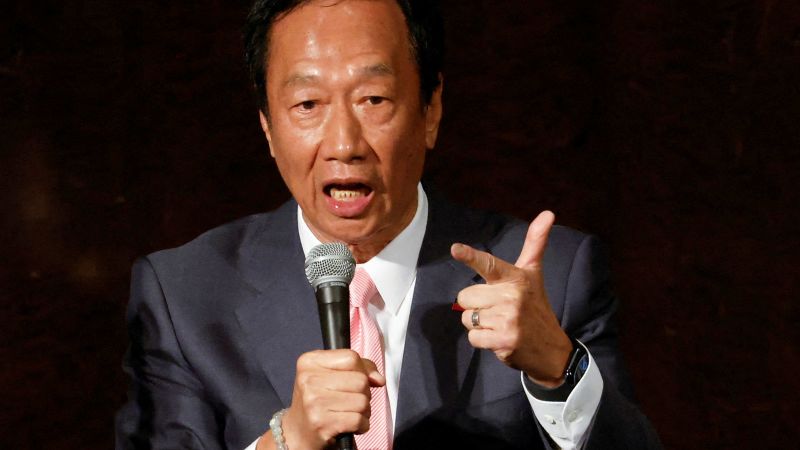Terry Gou, the billionaire founder of major Apple supplier Foxconn, withdrew from the race to become Taiwan’s next president on Friday, just hours before the deadline to formally register as a candidate.
“I have never yielded in the battlefield of international business,” Gou said in a statement, without providing a specific reason for the retreat. “For the future of the Republic of China, choosing to yield is all the love I can give to my homeland,” Gou added, referencing Taiwan’s official name.
In a separate Facebook post on Friday, Gou’s running mate Tammy Lai also confirmed that the pair would “not appear on the ballot in 2024.”
Taiwan’s presidential election is set to take place on January 13, 2024.
Gou, a self-made billionaire with limited political experience, threw his hat into the ring as an independent candidate in August and stepped down from Foxconn’s board. The septuagenarian previously stood for election in 2019.
Gou’s withdrawal came a day after his last-ditch efforts to organize a joint ticket between main opposition candidates, Hou Yu-ih of the Kuomintang and Ko Wen-je of the Taiwan People’s Party, dramatically collapsed on live television and the two registered to run separately on Friday morning. Gou and the opposition candidates shared the same goal of defeating the ruling Democratic Progressive Party, but he had consistently trailed far behind in the polls.
Gou founded Foxconn, established as Hon Hai Precision Industry in Taiwan, in 1974. Shortly after he announced his bid, Chinese state media reported that Foxconn was under investigation by authorities in China over land use and tax concerns.
The probe came weeks after Gou had stressed that he wouldn’t be pressured by Beijing, despite his extensive business operations in the country.
“If the Chinese Communist regime says, ‘If you don’t listen to me, we will confiscate Hon Hai [Foxconn]’s property. I will say, ‘Yes, please do it,’” Gou said at a press conference in Taipei in August.
Foxconn told CNN in a statement at the time that complying with the law was one of its “basic principles,” and that it would “actively cooperate.”
The company did not immediately respond to a request for an update on the matter on Friday.
In November, a Foxconn subsidiary in the central Chinese city of Wuhan was fined 20,000 yuan ($2,800) by a local tax authority for overstating its research and development expenses in 2021 and 2022, according to a notice published on the state-run National Center for Public Credit Information.
Read the full article here





